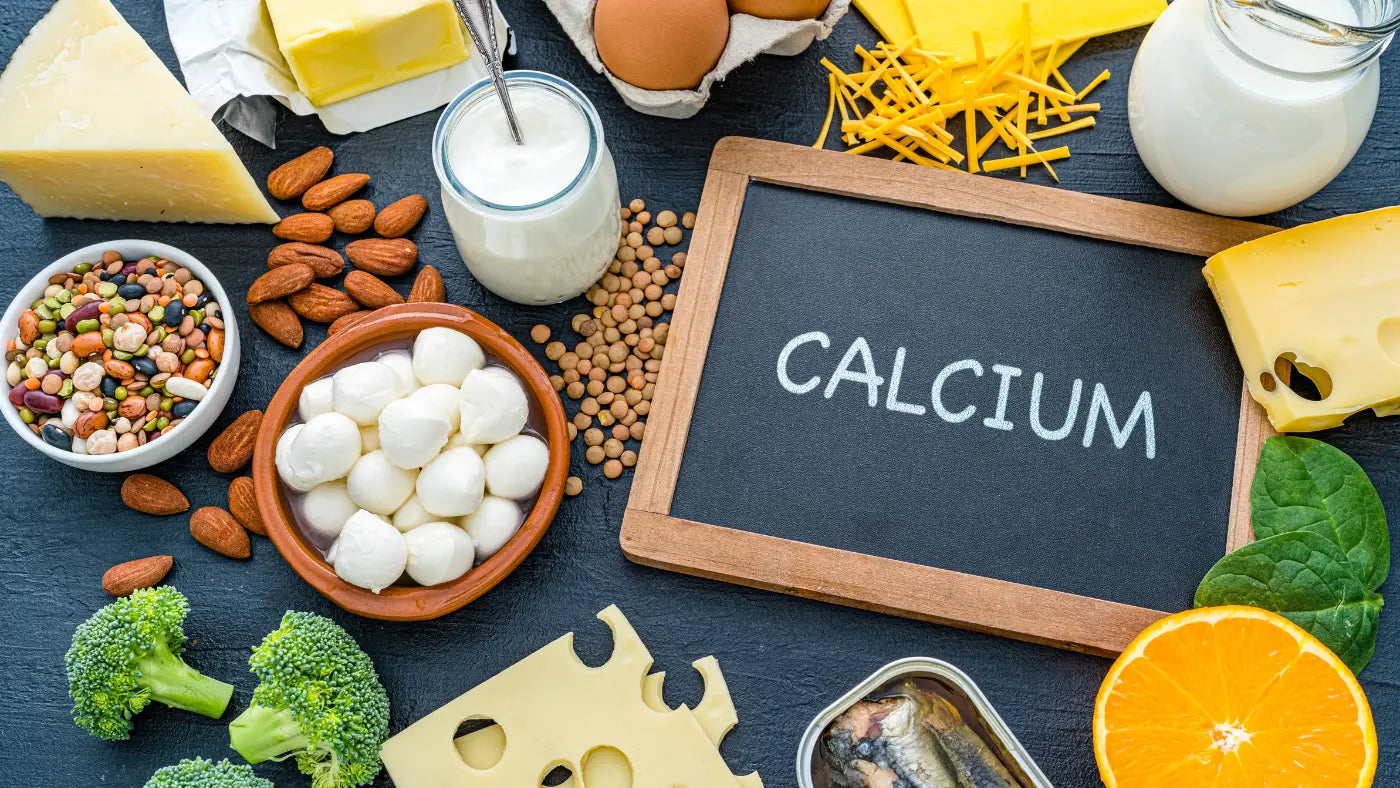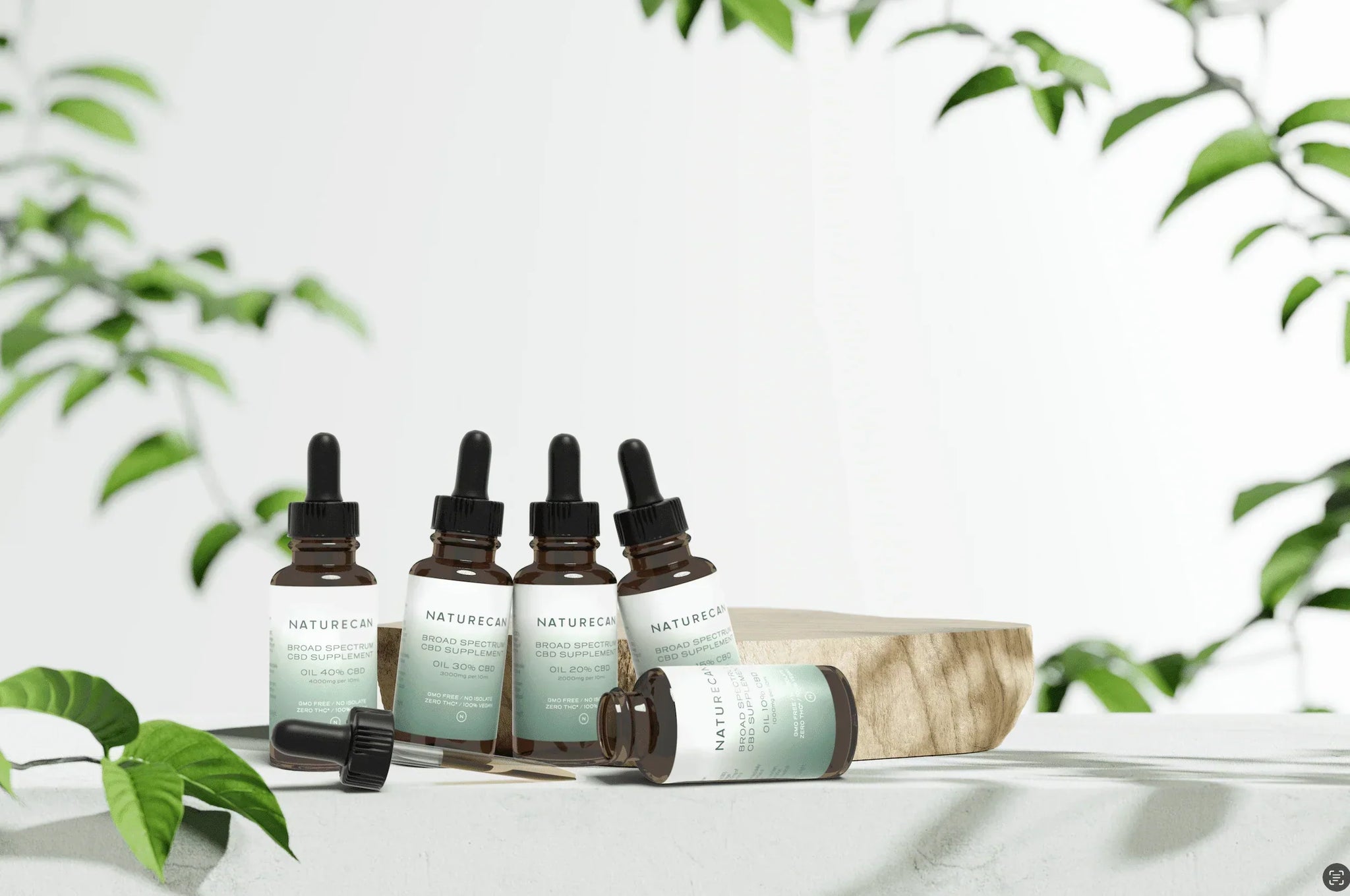Top 10 Natural Anti-Inflammatories for Effective Pain Relief
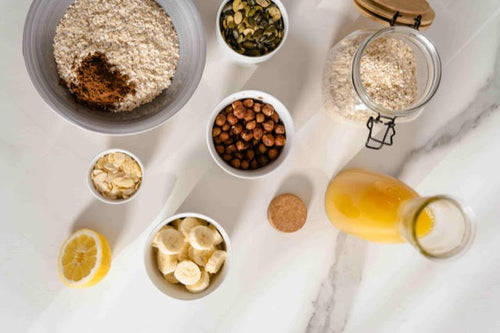
Medically Reviewed by Dr Lilla Csonka: Jan 14, 2026
In the quest for pain relief and managing inflammation, natural alternatives to non-steroidal anti-inflammatory drugs (NSAIDs) have gained popularity. These natural remedies, such as Curcumin, Omega-3 Fatty Acids, CBD and Capsaicin not only offer the potential for reducing inflammation but also come with fewer side effects.
Below, we explore the top 10 natural anti-inflammatories, detailing their benefits, sources, and general consumption guidelines, and provide tips for safe usage.
Understanding Inflammation
Inflammation is the body's defence mechanism against injury or infection, playing a crucial role in healing. However, when inflammation becomes chronic, it can lead to various health issues, including arthritis, heart disease, and more. Managing inflammation through natural means such as an anti-inflammatory diet can be a holistic approach to maintaining health and preventing disease.
Top 10 Natural Anti-Inflammatories
1. Turmeric (Curcumin)
Potential Benefits: Curcumin is celebrated for its potential anti-inflammatory and antioxidant effects, capable of reducing inflammatory cytokines and enzymes like COX-2. In particular, there are potential benefits in managing arthritis and maybe protecting against oxidative stress.
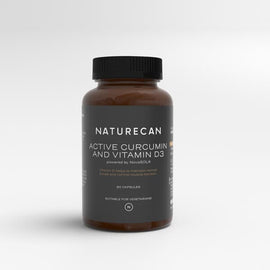
2. Ginger
Potential Benefits: Gingerol, found in ginger, offers anti-inflammatory and antioxidant effects, reducing pro-inflammatory cytokines and providing relief in conditions like osteoarthritis. It also aids in gastrointestinal health and neutralises free radicals. Ginger can be found in our delicious and natural CBD Hemp Tea. Hemp Tea has been studied with results indicating that it may help to reduce anxiety and assist with improving your sleep cycle.
3. Omega-3 Fatty Acids
Potential Benefits: EPA and DHA are known to as an anti-inflammatory supplement, potentially lowering the risk of heart disease and improving conditions like arthritis. They work by decreasing the production of inflammatory eicosanoids and cytokines.
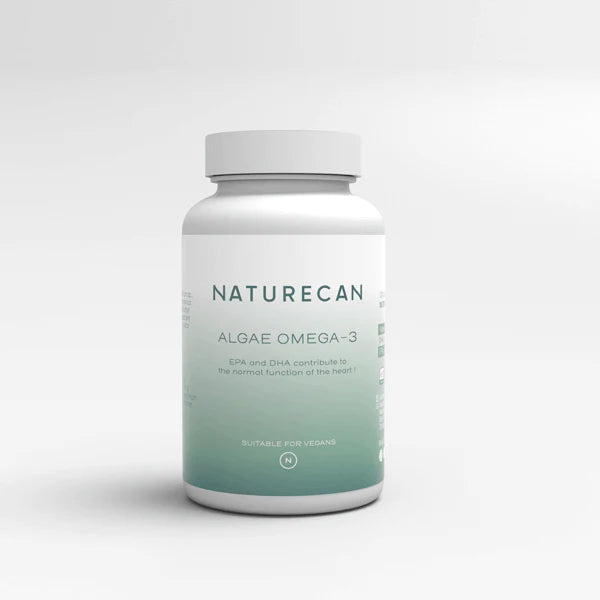
4. Green Tea
Potential Benefits: Rich in polyphenols and antioxidants, green tea, especially its component EGCG, has been linked to reduced inflammation and improved immune responses in arthritis. Better yet, Green Tea lattes are delicious and on trend! Why not try switching your daily coffee for a green tea today?
5. CBD (Cannabidiol)
Potential Benefits: CBD has shown promise in reducing inflammation and chronic pain without psychoactive effects. It may help manage conditions characterised by inflammation. Want to learn more about CBD? Check out our article, “15 effects of CBD Oil” over on our Blog.
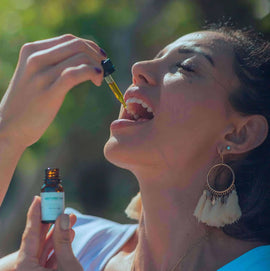
6. Boswellia (Frankincense)
Potential Benefits: Traditionally used for its anti-inflammatory properties, Boswellia has shown effectiveness in improving symptoms of osteoarthritis and reducing inflammation.
7. Resveratrol
Potential Benefits: Resveratrol has anti-inflammatory effects, reducing inflammation markers and potentially benefiting conditions like arthritis and heart disease
8. Capsaicin
Potential Benefits: Used in topical creams, capsaicin can reduce pain and inflammation by depleting the neurotransmitter responsible for transmitting pain signals. Instantly activating, our Chilli Heat CBD Muscle Balm includes capsaicin, helping to relieve tired and aching muscles following high-intensity exercise and sports of all kinds. Harnessing the natural heat of capsaicin, and infused with high-quality cannabidiol (CBD), the specially formulated cream offers a deep warming sensation for fast and effective relief.
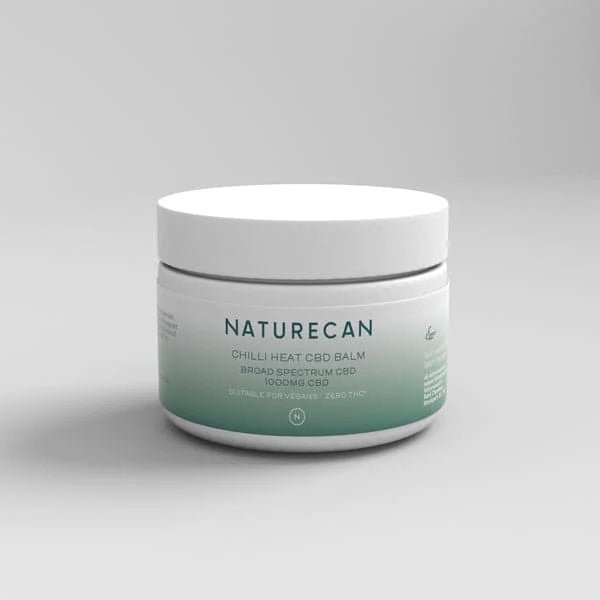
9. Bromelain
Potential Benefits: This enzyme has anti-inflammatory and analgesic properties, shown to reduce post-operative swelling and pain.
10. Quercetin
Potential Benefits: Quercetin may reduce inflammation and allergy symptoms through its antioxidant and anti-inflammatory properties.
Introducing Apple Cider Vinegar Gummies for your anti-inflammatory diet
Discover our brand new Apple Cider Vinegar Gummies as a part of our new Longevity range at Naturecan! Taking the recommended daily dosage of 2 ACV Gummies per day may aid against age related oxidative stress, reduce tiredness and fatigue, help maintain a normal body weight and support blood glucose concentrations. Incorporate our delicious Apple Cider Vinegar Gummies into your daily routine today!
Key Benefits:
- High-dose of 500mg Apple Cider Vinegar per gummy
- Delicious & natural apple flavour
- Convenient & easy-to-take
- Vegan Friendly
- Added vitamin C for secondary health benefits
- Enjoy the health benefits of ACV without the unpleasant taste

The Longevity Guide: Everything You Need to Know About Longevity


This is our complete beginner's guide to Longevity. We explain what it is, what studies are available, where it comes from, what it is used for, and a few other facts you may not know.
Do anti-inflammatory supplements work for pets?
UC-II® and CBD are popular supplements for pet health, particularly for dogs, cats, and horses. UC-II® is a patented form of undenatured type II collagen that may support joint health by reducing discomfort and promoting mobility in pets. CBD (Cannabidiol) is known for its potential anti-inflammatory properties, which may help manage pain and improve overall well-being in pets with chronic conditions. Additionally, CBD may have calming effects, potentially aiding pets that experience anxiety or stress. Always consult a veterinarian before introducing these supplements to ensure they suit your pet's health needs.
CBD Oil for Dogs
Naturecan CBD oil for dogs is made with our proprietary blend of CBD and CBDA isolate. To achieve this, we refine our human broad-spectrum CBD with advanced chromatography technology and separate the CBD and CBDA from terpenes and flavonoids which may be dangerous to pets.
- Non-toxic, pet-safe CBD oil
- Specially formulated for dogs
- Free from all traces of flavonoids and terpenes
- 0% THC guaranteed
- Certificate of Analysis from an independent ISO17025 cert lab

CBD Oil for Cats
Naturecan CBD oil for cats is made with our proprietary blend of CBD and CBDA isolate. To achieve this, we refine our human broad-spectrum CBD with advanced chromatography technology and separate the CBD and CBDA from terpenes and flavonoids which may be dangerous to pets.
- Non-toxic, pet-safe CBD oil
- Specially formulated for cats
- Influences the endocannabinoid system
- 0% THC guaranteed
- Certificate of Analysis from an independent ISO17025 cert lab

CBD Oil for Horses
Naturecan CBD oil for horses is made with our proprietary blend of CBD and CBDA isolate. To achieve this, we refine our human broad-spectrum CBD with advanced chromatography technology and separate the CBD and CBDA from terpenes and flavonoids which may be dangerous to horses.
- Non-toxic, pet-safe CBD oil
- Specially formulated for horses
- Influences the endocannabinoid system
- 100% vegan – derived from certified organic US-grown hemp
- Certificate of Analysis from an independent ISO17025 cert lab
- Free from all traces of flavonoids and terpenes

How to Use Natural Anti-Inflammatories Safely
Tips for Incorporation
- Start with small doses and gradually increase to the recommended amount.
- Incorporate these substances into your diet through natural sources where possible, such as adding turmeric to your meals or drinking green tea.
Potential Side Effects and Interactions
- Be aware of potential side effects, such as digestive upset from high doses of turmeric or ginger.
- Some substances, like CBD Oils, may interact with other medications.

Consulting a Healthcare Provider
Always consult with a healthcare professional before starting any new supplement or starting an anti-inflammatory diet, especially if you have existing health conditions or are on medication.
Additional Natural Anti-Inflammatory Substances
- Willow Bark: Known as "nature's aspirin," it has been used for centuries for pain relief and inflammation.
- Chamomile: A herb with anti-inflammatory properties, often used in tea form for relaxation and inflammation reduction.
- Flavonoids: Found in fruits and vegetables, these compounds have antioxidant properties that support inflammation reduction.
- Zinc: An essential vitamin that supports the immune system and has anti-inflammatory effects.
- Magnesium: Involved in over 300 biochemical reactions in the body, including reducing inflammation.
- Berries: Berries like strawberries, blueberries, and raspberries are rich in antioxidants and anthocyanins, offering potent anti-inflammatory benefits. They support heart health, improve insulin response, and may protect against cancer.
- Garlic: Garlic contains allicin, which has immune-boosting and anti-inflammatory properties. It can help reduce inflammation, lower blood pressure, and decrease cholesterol levels, contributing to cardiovascular health.
- Tomatoes: Tomatoes are high in lycopene, an antioxidant that reduces inflammation and the risk of chronic diseases such as heart disease and cancer. They're also a good source of vitamin C, potassium, and folate.
- Rosemary: Rosemary is a culinary herb with antioxidants and anti-inflammatory compounds like rosmarinic acid. It supports immune health, improves digestion, and may enhance memory and concentration.
- Spirulina: Spirulina, a blue-green algae, is a superfood packed with protein, vitamins, and minerals. It has antioxidant and anti-inflammatory effects, thanks to phycocyanin. Spirulina may improve metabolism, reduce oxidative damage, and lower blood pressure.
These natural foods and supplements offer a range of health benefits, including reducing inflammation and supporting overall well-being.
Lifestyle Changes to Support Anti-Inflammatory Living
Diet Modifications
- Adopt an anti-inflammatory diet rich in fruits, vegetables, whole grains, and omega-3 fatty acids.
- Limit intake of processed foods, sugars, and saturated fats.
Discover our Vegan Multivitamin Capsules for more.
Regular Exercise
- Engage in regular physical activity, which can help reduce inflammation and improve overall health.
Stress Management
- Practice stress-reduction techniques such as meditation, yoga, or deep breathing exercises to help lower stress-induced inflammation.

FAQs
What are natural anti-inflammatories?
Natural anti-inflammatories are substances from plants, foods, and supplements that reduce inflammation with fewer side effects, offering a variety of nutrients and bioactive compounds to mitigate the body's inflammatory response.
How do natural anti-inflammatories work?
They target the body's inflammatory pathways, inhibiting pro-inflammatory cytokines and enzymes, blocking NF-kB activity, and neutralising free radicals, thereby reducing inflammation.
Can natural anti-inflammatories replace NSAIDs?
They may serve as complementary or alternative options for managing chronic inflammation or mild pain, but their ability to replace NSAIDs varies with the condition's severity and individual health. Consult a healthcare provider before making any changes.
How does CBD help with inflammation?
CBD interacts with the endocannabinoid system, reducing pro-inflammatory cytokines and inhibiting T-cell function, aiding in both acute and chronic inflammation management. Its safety and non-psychoactive nature make it a popular choice for natural inflammation relief.
Conclusion
The top natural anti-inflammatories offer a promising alternative for managing inflammation effectively and safely. By incorporating these substances into your lifestyle, along with making diet modifications, exercising regularly, and managing stress, you can adopt a holistic approach to inflammation and enhance your overall well-being.
Remember, consulting with a healthcare provider before starting any new supplement is crucial to ensure it's appropriate for your health needs.


Dr Lilla Csonka
Medical Advisor at Naturecan
Dr Lilla Csonka is a medical doctor with primary interest in nutrition, sustainable and enjoyable weight
loss and preventive care. She worked as a medical doctor in psychiatry, so the emotional, mental
aspects of eating problems are also in scope with her clients.
She is working as a General Practitioner
resident doctor, so she has a clear understanding of the basic medical symptomology and disease care.
Dr. Csonka is eager to look through evidence based journals, articles to provide accurate, scientifically
backed medical data in the relevant scientific fields.











